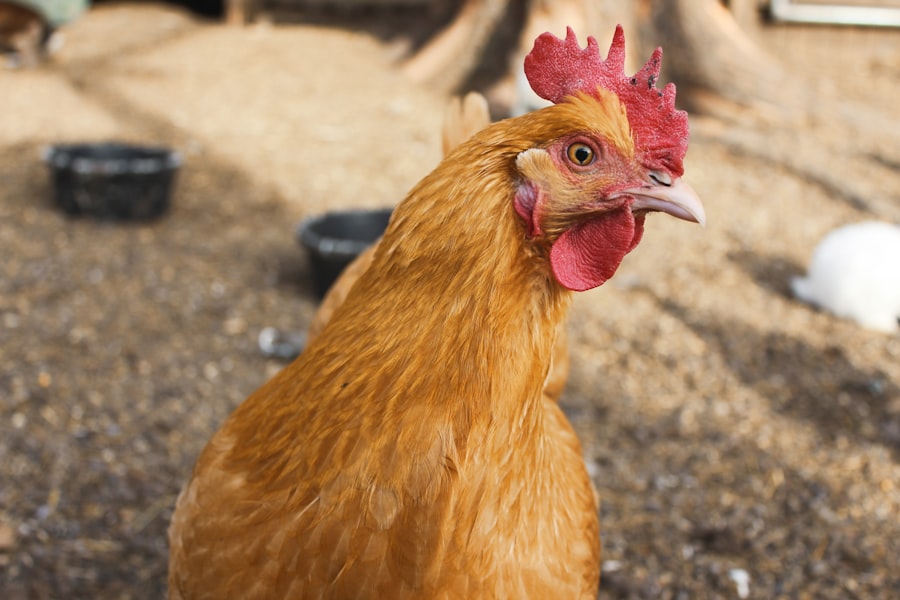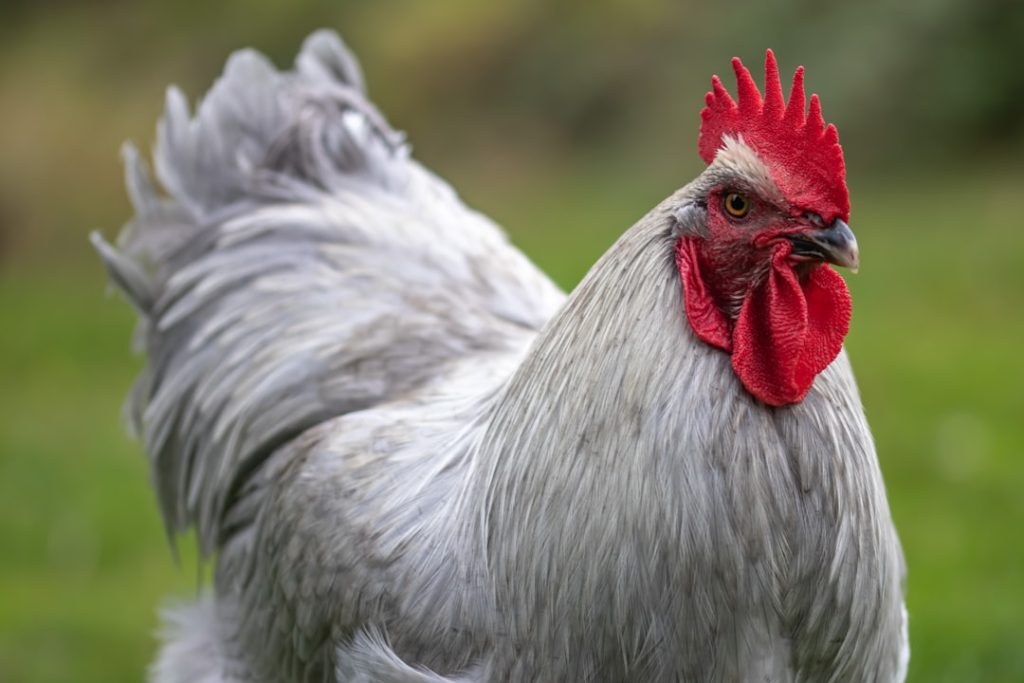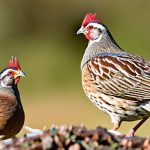Chickens are widely kept as domestic animals on farms and in households, valued for their egg production, ability to control pests, and potential as companion animals. However, sudden and unexplained chicken deaths can be a distressing experience for owners. These unexpected losses often leave caretakers feeling powerless and perplexed.
It is crucial for those responsible for chickens to be aware of the common causes of sudden mortality in their flocks, as well as to recognize signs of illness in their birds. By taking proactive measures and implementing preventive strategies, chicken keepers can safeguard their flocks and reduce the likelihood of unexpected deaths. In the event of an unexplained chicken death, understanding the appropriate actions to take can assist owners in managing the situation with sensitivity and respect for their deceased birds.
Table of Contents
- 1 Common causes of sudden chicken deaths
- 2 Signs and symptoms to look out for in sick chickens
- 3 Preventive measures to protect chickens from sudden death
- 4 Steps to take when a chicken dies unexpectedly
- 5 Consulting a veterinarian for professional advice and diagnosis
- 6 Conclusion and summary of key points for chicken owners
- 7 FAQs
Key Takeaways
- Chickens dying for no reason is a common issue that can be distressing for chicken owners.
- Common causes of sudden chicken deaths include predators, disease, stress, and environmental factors.
- Signs and symptoms to look out for in sick chickens include lethargy, loss of appetite, abnormal droppings, and respiratory distress.
- Preventive measures to protect chickens from sudden death include providing a clean and safe environment, regular health checks, and proper nutrition.
- When a chicken dies unexpectedly, it is important to remove the body promptly, disinfect the area, and monitor the remaining flock for any signs of illness.
- Consulting a veterinarian for professional advice and diagnosis is crucial in identifying the cause of sudden chicken deaths and preventing further losses.
- In conclusion, being aware of common causes, signs, and preventive measures can help chicken owners better care for their flock and minimize the risk of sudden deaths.
Common causes of sudden chicken deaths
Predation: A Common Threat
One of the most prevalent causes of sudden chicken deaths is predation. Chickens are often targeted by predators such as foxes, raccoons, and birds of prey.
Diseases: A Silent Killer
In addition to predation, diseases such as avian influenza, Newcastle disease, and Marek’s disease can also lead to sudden deaths in chickens. These diseases can spread quickly and silently, making it essential for owners to be vigilant in monitoring their flock’s health.
Other Potential Causes
Other potential causes of sudden chicken deaths include heat stress, poisoning from toxic plants or chemicals, and internal issues such as egg binding or impacted crop. These causes can be just as deadly as predation and disease, and owners should be aware of the risks and take steps to prevent them.
By understanding the common causes of sudden chicken deaths, owners can take proactive measures to protect their birds and minimize the risk of unexpected losses. Early detection and prevention are key to keeping a healthy and thriving flock.
Signs and symptoms to look out for in sick chickens

Recognizing the signs and symptoms of illness in chickens is essential for early intervention and preventing sudden deaths. Some common signs of illness in chickens include lethargy, decreased appetite, abnormal droppings, respiratory distress, and changes in behavior or posture. Additionally, owners should be on the lookout for physical symptoms such as swollen eyes, nasal discharge, lameness, or abnormal feathering.
It’s important for owners to regularly observe their flock and be familiar with their birds’ normal behaviors and appearance, so that any deviations can be quickly identified and addressed. By being attentive to the signs and symptoms of illness in chickens, owners can take prompt action to seek veterinary care and implement appropriate treatment to prevent sudden deaths.
Preventive measures to protect chickens from sudden death
There are several preventive measures that chicken owners can implement to protect their flock from sudden death. One of the most important steps is to provide a safe and secure coop and run to protect against predation. This may include using hardware cloth instead of chicken wire, installing motion-activated lights or alarms, and ensuring that the coop is securely locked at night.
Additionally, maintaining a clean and dry living environment is crucial for preventing diseases and infections. Regularly cleaning the coop, providing fresh bedding, and ensuring good ventilation can help minimize the risk of respiratory issues and other health problems. Furthermore, providing a balanced diet, access to clean water, and regular health checks can help support the overall well-being of the flock.
By implementing these preventive measures, owners can create a safe and healthy environment for their chickens and reduce the likelihood of sudden deaths.
Steps to take when a chicken dies unexpectedly
When a chicken dies unexpectedly, it’s important for owners to handle the situation with care and respect for their bird. The first step is to remove the deceased chicken from the coop or run to prevent any distress to the remaining flock members. Owners should then carefully examine the body for any signs of injury or illness, which may provide clues as to the cause of death.
If there are no obvious signs of trauma or illness, owners may consider contacting a veterinarian for a necropsy to determine the cause of death. Proper disposal of the body is also important to prevent the spread of disease or attracting predators. Owners should follow local regulations for disposal or consider burying the bird in a deep hole away from water sources.
Finally, it’s important for owners to monitor the remaining flock for any signs of distress or illness, as sudden deaths can sometimes be indicative of an underlying health issue that may affect other birds.
Consulting a veterinarian for professional advice and diagnosis

Here is the rewritten text with 3-4 When to Seek Professional Help
In cases of sudden chicken deaths or suspected illness, consulting a veterinarian is crucial for professional advice and diagnosis. Veterinarians with experience in poultry health can provide valuable insight into potential causes of sudden deaths and offer guidance on preventive measures to protect the flock.
Determining the Cause of Death
In cases where a necropsy is warranted, veterinarians can perform a thorough examination of the deceased bird to determine the cause of death. This may involve collecting tissue samples for laboratory analysis to identify any underlying diseases or health issues.
Protecting the Flock
Additionally, veterinarians can provide recommendations for treatment and management strategies to support the overall health and well-being of the flock. By seeking professional advice and diagnosis from a veterinarian, chicken owners can gain a better understanding of potential health risks and take proactive measures to protect their birds from sudden deaths.
Conclusion and summary of key points for chicken owners
In conclusion, sudden chicken deaths can be a devastating experience for owners, but by understanding the common causes, signs and symptoms of illness, preventive measures, and proper steps to take when a chicken dies unexpectedly, owners can better protect their flock and minimize the risk of unexpected losses. It’s important for owners to be vigilant in monitoring their flock for any signs of distress or illness, as early detection can be crucial in preventing sudden deaths. By implementing preventive measures such as providing a safe and secure living environment, maintaining good hygiene practices, and seeking professional advice from a veterinarian when needed, owners can create a healthy and supportive environment for their chickens.
In the unfortunate event that a chicken does die unexpectedly, handling the situation with care and respect is essential for both the deceased bird and the remaining flock members. By being proactive and informed, chicken owners can better safeguard their flock and provide a high quality of life for their beloved birds.
If you are struggling with chickens mysteriously dying, it may be helpful to consider the diet and living conditions of your flock. According to a related article on Poultry Wizard, quails have specific dietary needs and preferences when it comes to vegetables. Understanding the dietary requirements of different poultry species can help ensure the health and well-being of your flock. Additionally, it may be beneficial to review the design and maintenance of your chicken coop, as discussed in another article on Poultry Wizard. Making adjustments to the coop layout and cleanliness can help prevent potential health issues for your chickens.
FAQs
What are some common reasons why chickens die unexpectedly?
Some common reasons why chickens die unexpectedly include predators, disease, parasites, extreme weather, and accidents.
How can I prevent chickens from dying unexpectedly?
To prevent chickens from dying unexpectedly, it is important to provide a safe and secure coop, regular veterinary care, proper nutrition, and protection from predators. Additionally, practicing good biosecurity measures can help prevent the spread of diseases.
What are some signs of illness in chickens?
Signs of illness in chickens may include lethargy, decreased appetite, abnormal droppings, respiratory issues, abnormal behavior, and changes in egg production. It is important to monitor the health of your chickens regularly and seek veterinary care if any concerning symptoms arise.
What should I do if I find a dead chicken?
If you find a dead chicken, it is important to remove the body promptly to prevent the spread of disease. It is also important to inspect the rest of the flock for any signs of illness or injury and to take appropriate measures to prevent further deaths.
How can I ensure the overall health and well-being of my chickens?
To ensure the overall health and well-being of your chickens, it is important to provide a clean and safe living environment, a balanced diet, regular veterinary care, and protection from predators. Additionally, practicing good biosecurity measures and monitoring the flock for any signs of illness or injury can help maintain the health of your chickens.
Meet Walter, the feathered-friend fanatic of Florida! Nestled in the sunshine state, Walter struts through life with his feathered companions, clucking his way to happiness. With a coop that’s fancier than a five-star hotel, he’s the Don Juan of the chicken world. When he’s not teaching his hens to do the cha-cha, you’ll find him in a heated debate with his prized rooster, Sir Clucks-a-Lot. Walter’s poultry passion is no yolk; he’s the sunny-side-up guy you never knew you needed in your flock of friends!







